MONTEREGGIO
ITALY
As the number and weight of the books increased, the sellers turned to using carts pulled by hand or by horses.
The history of bookselling in the tiny hillside village of Montereggio in Tuscany goes back several centuries, well before it held the sixth International Book Town Festival in 2008. Indeed, the first printing press was operated in the town by Jacopo da Fivizzano in 1471 and the first bookshop was opened there in the late 1490s by Sebastiano da Pontremoli. Over the next 100 years, increasing numbers of local residents – sometimes entire families – began to operate as itinerant booksellers, toting huge wicker baskets of books around the local towns, visiting fairs and markets around central and northern Italy. The most popular titles initially were engravings and almanacs.
These ambulant sellers made their way gradually into the rest of the country and eventually even abroad into Europe and South America, as some turned themselves into publishers and booksellers with bricks and mortar premises. The work of families such as the Bertoni, Fogola, Ghelfi, Giovannacci, Maucci, Lazzarelli, Lorenzelli, Rinfreschi, and Tarantola is remembered in the many streets named after them throughout the town. In 1952, Montereggio hosted the inaugural Premio Bancarella, Italy’s leading literary prize.
This gradual change was partly the result of the decline of the regional silk trade, forcing people to sell other goods. As well as books, the roaming salesmen and women also sold knives and other tools from their baskets. As the number and weight of the books increased, the sellers turned to using carts pulled by hand or by horses. Today, this history and the town’s ongoing book activities are supervised by the volunteers of the Associazione Le Maestà di Montereggio, founded in 2013.
“It was very easy to get a licence to sell books as no rules existed. Merchants, junk dealers and illiterates could get one,” explains the assocation’s President Giacomo Maucci. “For example, in 1853, Montereggio resident Sante Maucci was a farmer, dentist, razor stones seller and bookseller.”
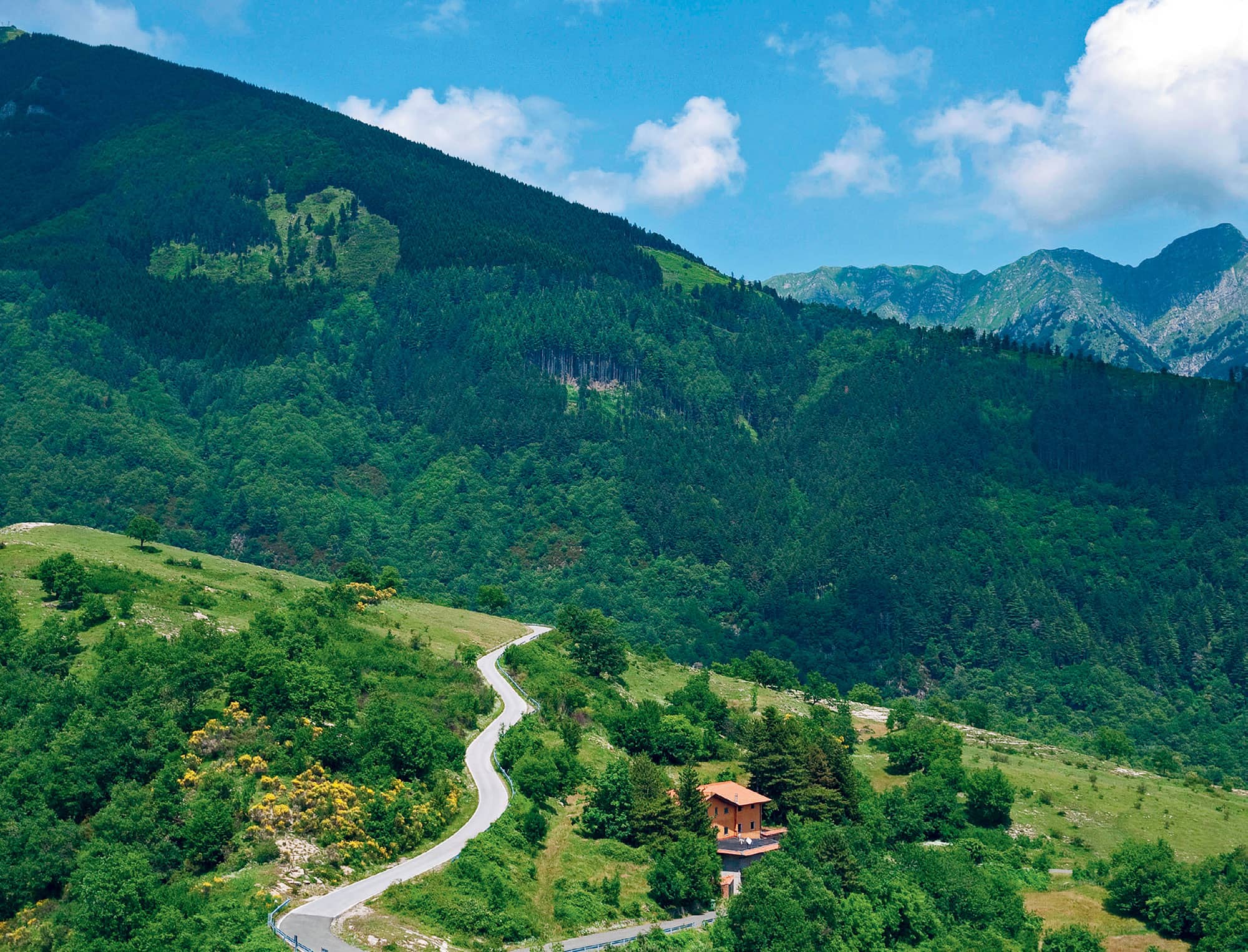
The rolling hills and winding roads of Lunigiana, the region in Tuscany, Italy, that is home to Montereggio.
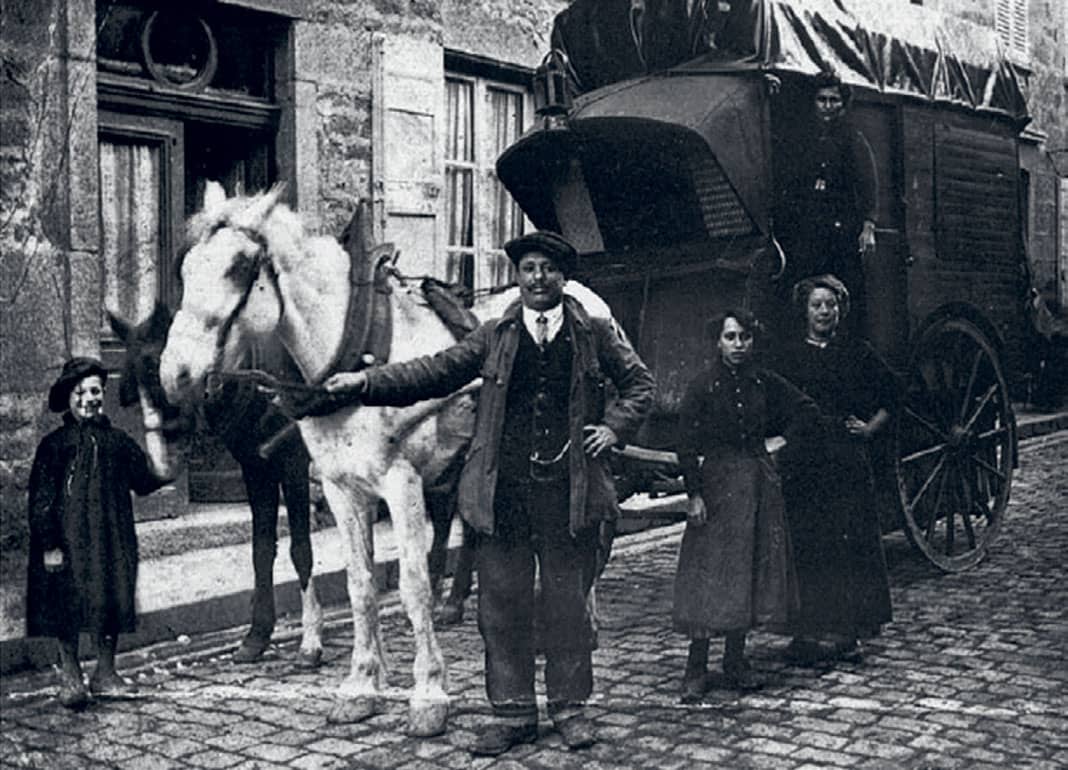
Ambulant booksellers Oreste Giovannacci and Maria Maucci pictured in France in 1920.
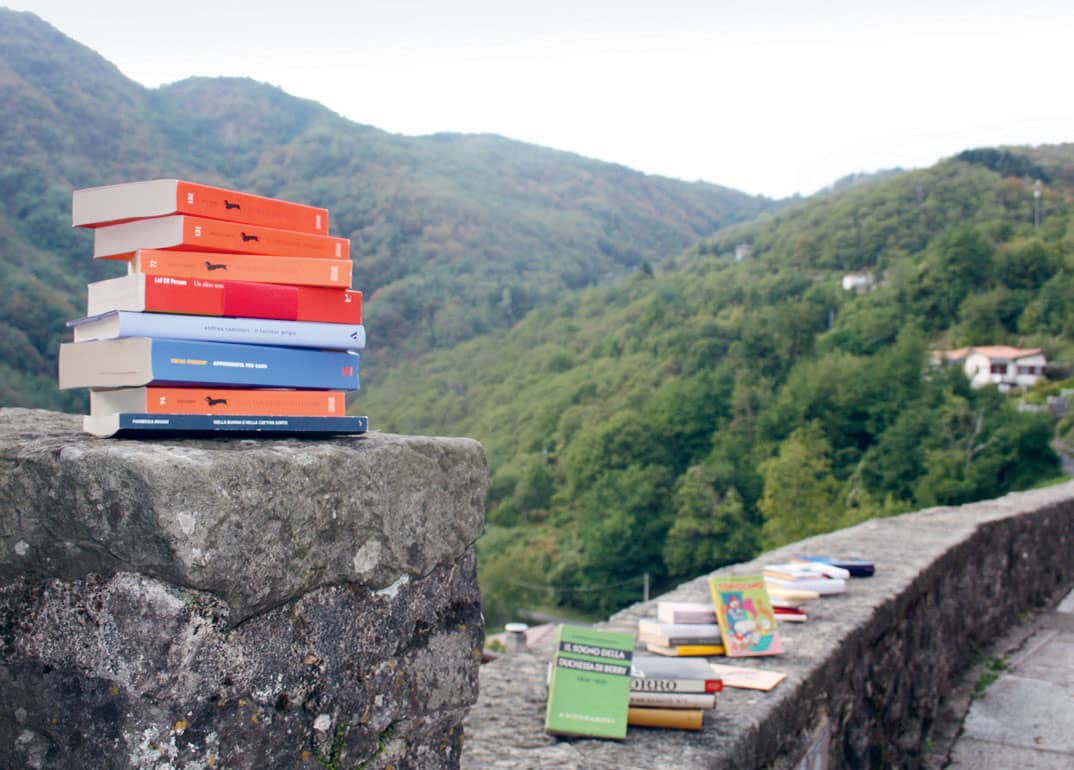
Books line the city walls outside Montereggio.
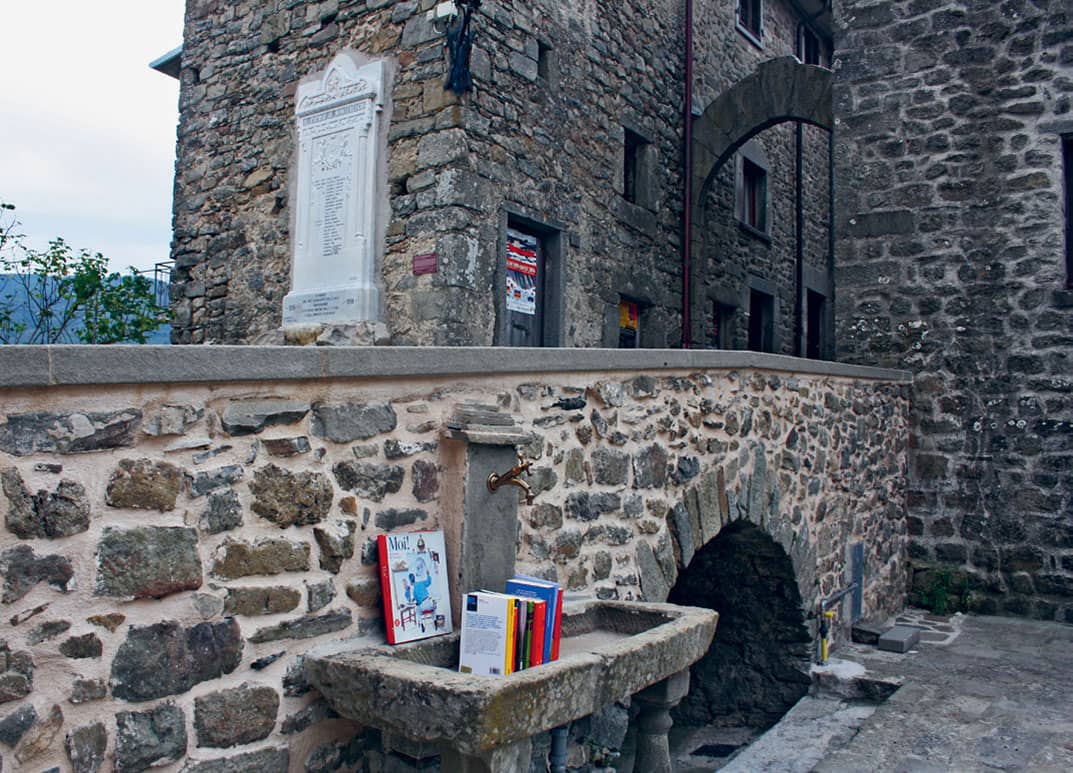
One of the many open air book stalls scattered around town.
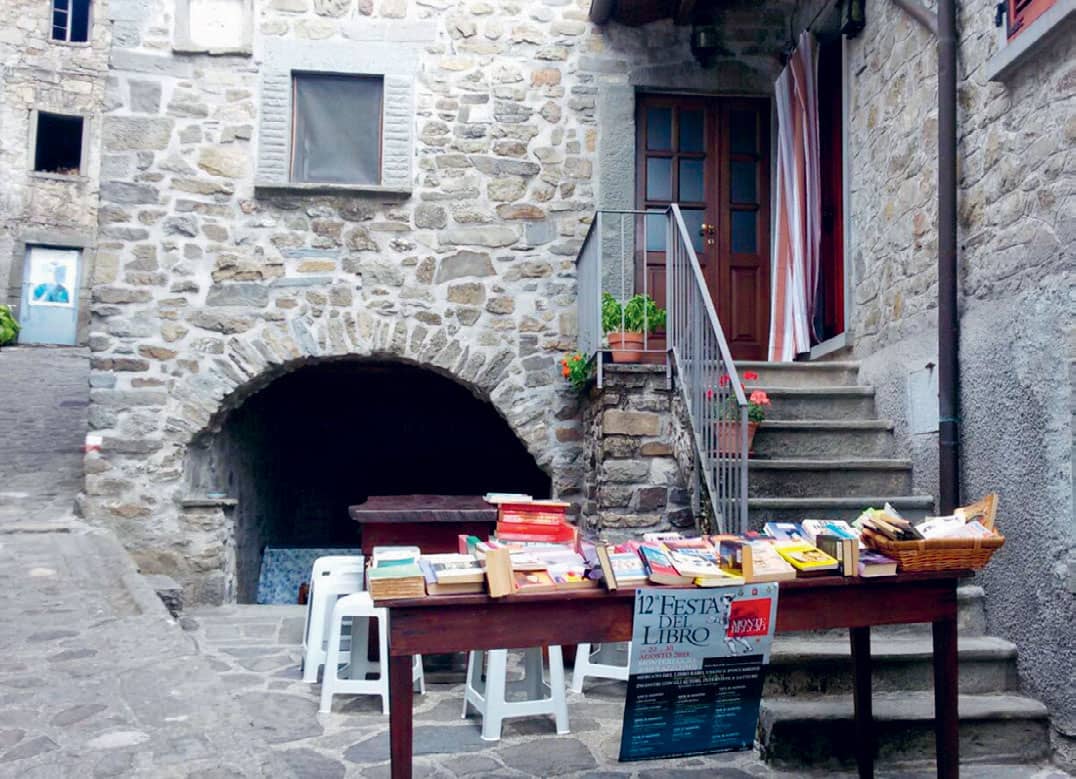
A street stall at the twelfth book festival.
By the time of Italian unification, intellectuals and richer members of society became particularly good customers, interested in banned books the ambulant booksellers were able to bring over the border from abroad. “The most requested books were those written by Mazzini, D’Azzeglio, Cattaneo, Rossetti, Pellico, Balbo but also erotic and romantic novels and the books written by Macchiavelli and Voltaire,” says Giacomo.
Ironically, many of the booksellers were illiterate and probably only recognised books by their covers, which led to problems when books were republished by different publishers.
Today, this village of just fifty inhabitants hosts a huge book fair every August, and a prestigious illustrated book award to new unpublished titles, The Silent Book Contest. In addition to the several bookshops there are also many honesty shops, with piles of books arranged in niches and on tables scattered around Montereggio.

The town’s statue, a salute to the itinerant booksellers.